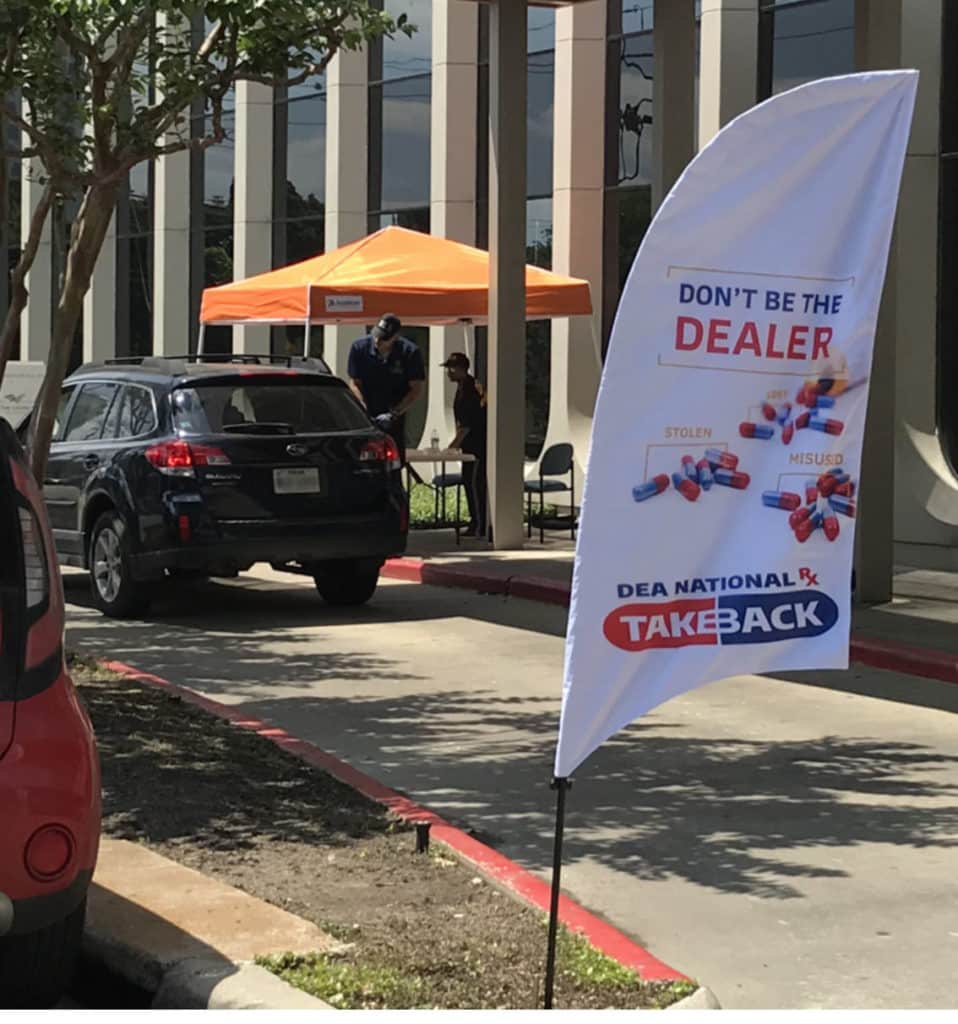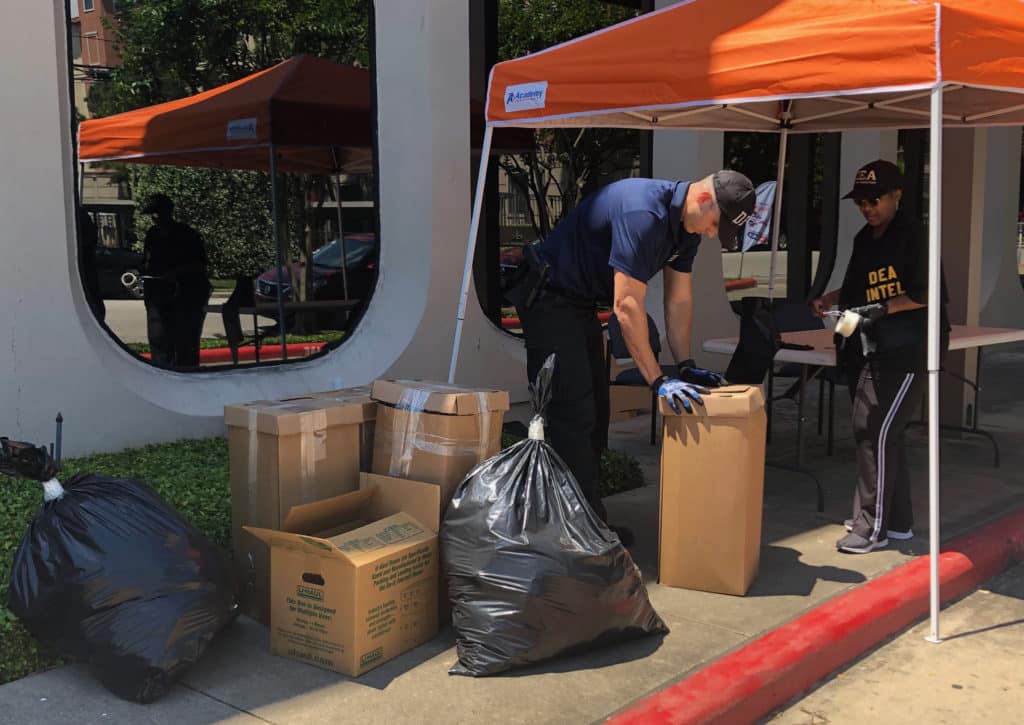

The Council on Recovery was a busy collection site for the DEA’s 16th National Rx Take Back Day this past Saturday. Nearly 100 people stopped by The Council’s drive-in location on Jackson Hill Street to dispose of their unused and expired prescription medications. By the end of the four-hour collection period, DEA agents had collected more than 400 pounds of Rx drugs.
This is the first time The Council has participated in the DEA’s National Take Back Day. The national initiative was launched after Congress enacted the Disposal Act in 2014, which amended the Controlled Substances Act, that gave the DEA authority to collect unused pharmaceutical controlled substances for disposal in a safe and effective manner.
The Council views unused or expired prescription medications as a public safety issue that contributes to potential accidental poisoning, misuse, and overdose. Proper disposal of unused drugs saves lives and protects the environment. As a Rx Take Back Day collection site, The Council provided a secure, convenient, and anonymous way for its constituency to clear their homes of old or unneeded Rx medications in a responsible manner.
As one of nearly 350 collection sites across the state, The Council provided an easily accessible and central location for residents in the Heights, Rice Military, Montrose, River Oaks, Midtown, and near-Downtown areas to dispose of their medications. During the last Rx Take Back Day in October, over 67,000 pounds of Rx prescriptions were collected in Texas, according to the Drug Enforcement Administration Diversion Control Division. The Council on Recovery is pleased to contribute 400 pounds to this Spring’s total haul and plans to participate in future Rx Take Back events.
If you missed Rx Take Back Day at The Council, you can still dispose of unused or expired prescriptions at DEA authorized collection sites, many of which are located within national and local pharmacies. To search the DEA’s website for a collection site near you, click here.
